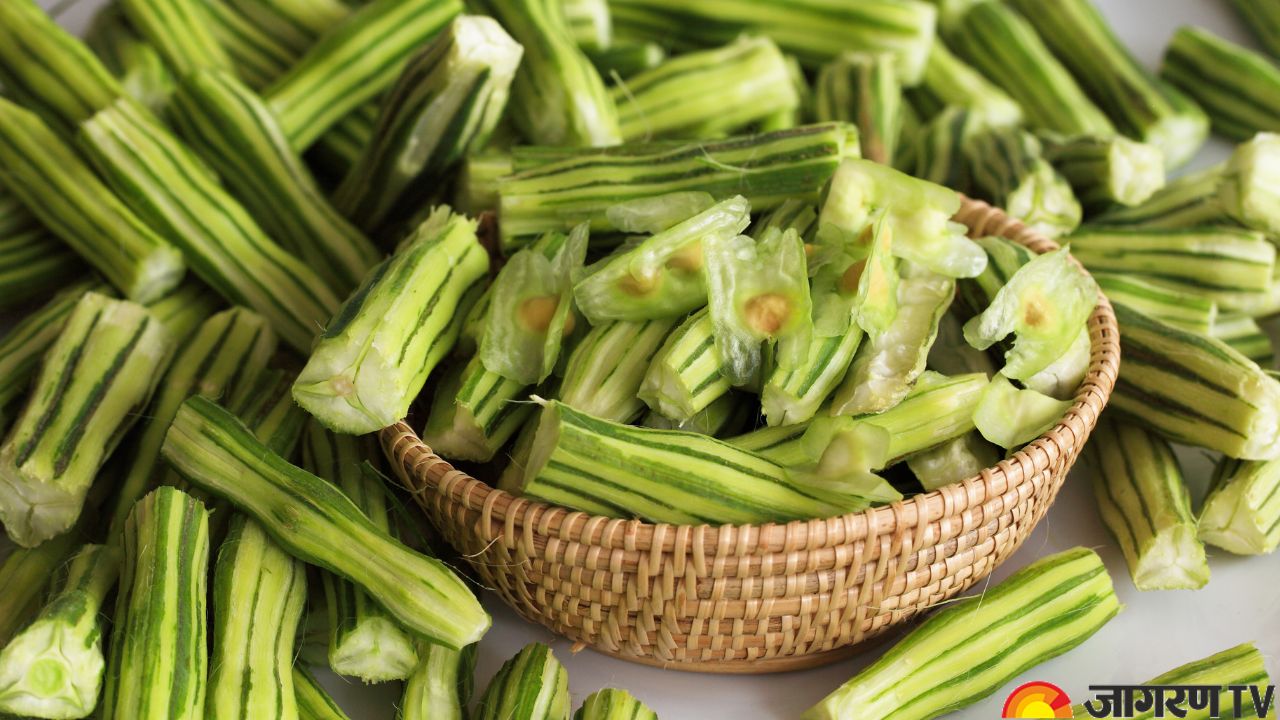Drumstick Plant: Benefits of Moringa, Side Effects, Nutritional Value, Uses, and More

Drumstick Benefits: Moringa oleifera, the scientific name for the drumstick tree, is a drought-resistant, quickly growing plant that is indigenous to India. From its leaves and pods to its blooms, seeds, and roots, every aspect of this amazing tree has long been used for its nutritional and therapeutic qualities. Its remarkable nutrient profile and other health advantages have caused its popularity as a superfood to soar in recent years on a global scale.
Let us explore the various benefits, nutritional value and more about the moringa plant.
Moringa Nutritional Value
With an amazing variety of vitamins, minerals, and vital amino acids, moringa is a nutritional powerhouse. It is especially rich in nutrients in its leaves. Vitamin C, vitamin A (beta-carotene), calcium, potassium, protein, and iron are all present in fresh moringa leaves.
In addition, Moringa is a complete protein supply, which is uncommon for a plant, and contains a sizable quantity of B vitamins (B1, B2, B3, B6), Vitamin E, magnesium, zinc, phosphorus, and important amino acids. Flavonoids, polyphenols, and ascorbic acid are among its potent antioxidants.
Benefits of Moringa
-
Moringa’s high antioxidant content aids in the fight against oxidative stress, which has been connected to long-term conditions like diabetes, cancer, and heart disease.
-
Compounds with potent anti-inflammatory qualities, such as isothiocyanates, are found in moringa and may help treat inflammatory diseases, including arthritis.
-
Moringa may help lower blood sugar levels, according to several studies, which makes it advantageous for people who already have diabetes or are at risk of getting it.
-
Moringa has been shown to enhance cardiovascular health by lowering "bad" LDL cholesterol levels.
-
It has been said that moringa enhances the liver's general function and guards against toxicity-induced damage.
-
Some studies indicate that chemicals in moringa may have anticancer qualities, preventing the formation of cancer cells, but further research is required.
-
Moringa's wealth of vitamins, minerals, and antioxidants helps the body fight off illnesses by strengthening the immune system.
-
Its anti-inflammatory and antioxidant qualities may enhance cognitive function and shield brain cells from harm.
-
Moringa may help ease digestive problems and has modest laxative properties. Additionally, its fibre content promotes digestive health.
-
Moringa enhances bone strength and may help prevent osteoporosis due to its high calcium and phosphorus content.
-
Due to its nourishing and moisturising qualities, moringa oil is used topically to support healthy skin and hair in cosmetics.
Moringa Side Effects
-
When taking moringa, people who are taking medicine for high blood pressure or diabetes should keep a close eye on their levels because it may further lower them.
-
Moringa may have the ability to thin the blood. Before using moringa, people taking anticoagulant drugs (blood thinners) should speak with their doctor.
-
High dosages of moringa, particularly the root bark, might disturb certain people's digestive systems and result in heartburn, nausea, and diarrhoea.
-
The bark of the moringa root should not be consumed by pregnant women since it can induce uterine contractions and possibly result in miscarriage. Even while moderate dosages of the leaves are usually regarded as safe during pregnancy, it's best to speak with a healthcare provider.
-
Certain drugs, such as those for thyroid disorders, may interact with moringa. If you are taking any medications, always get your doctor's approval.
-
To prevent pesticide contamination, make sure the moringa you purchase from sources other than your own crop is reliable.
Uses of Drumstick (Moringa)
-
Salads, smoothies, soups, curries, and stews can all benefit from the addition of fresh leaves.
-
Moringa, when dried and processed into a fine powder, can be used in baking, cereals, yoghurt, and drinks. The most popular kind of supplements is this one.
-
Soups, sambar, and curries all use drumsticks as a vegetable. Their flavour is unique, spicy, and slightly sweet.
-
The seeds can be crushed to extract their oil or roasted and consumed as a snack. Ben oil, also known as moringa oil, is extremely stable and utilised in lubricants, cosmetics, and cooking.
-
Flowers can be consumed fresh or cooked, and they are frequently used to brew tea or to add to salads.
-
Although less frequently used, the root bark has therapeutic uses in various traditional medical systems (with caution due to potential toxicity).
यह भी पढ़ें
-
09 Apr, 2023
IPL 2023 : आज हैदराबाद और पंजाब में कौन मारेगा बाजी, ऐसी हो सकती है दोनों टीम की प्लेइंग इलेवन
-
09 Apr, 2023
कोरियन दूल्हे ने इंडियन स्टाइल में की शादी, घोड़ी भी चढ़ा और भांगड़ा भी किया, वीडियो हुआ वायरल
-
09 Apr, 2023
-
09 Apr, 2023
आकांक्षा दुबे मामले में आरोपी समर सिंह को भीड़ ने दौड़ाया, 14 दिन की न्यायिक हिरासत




